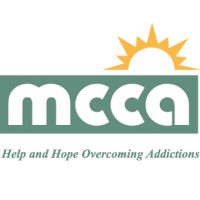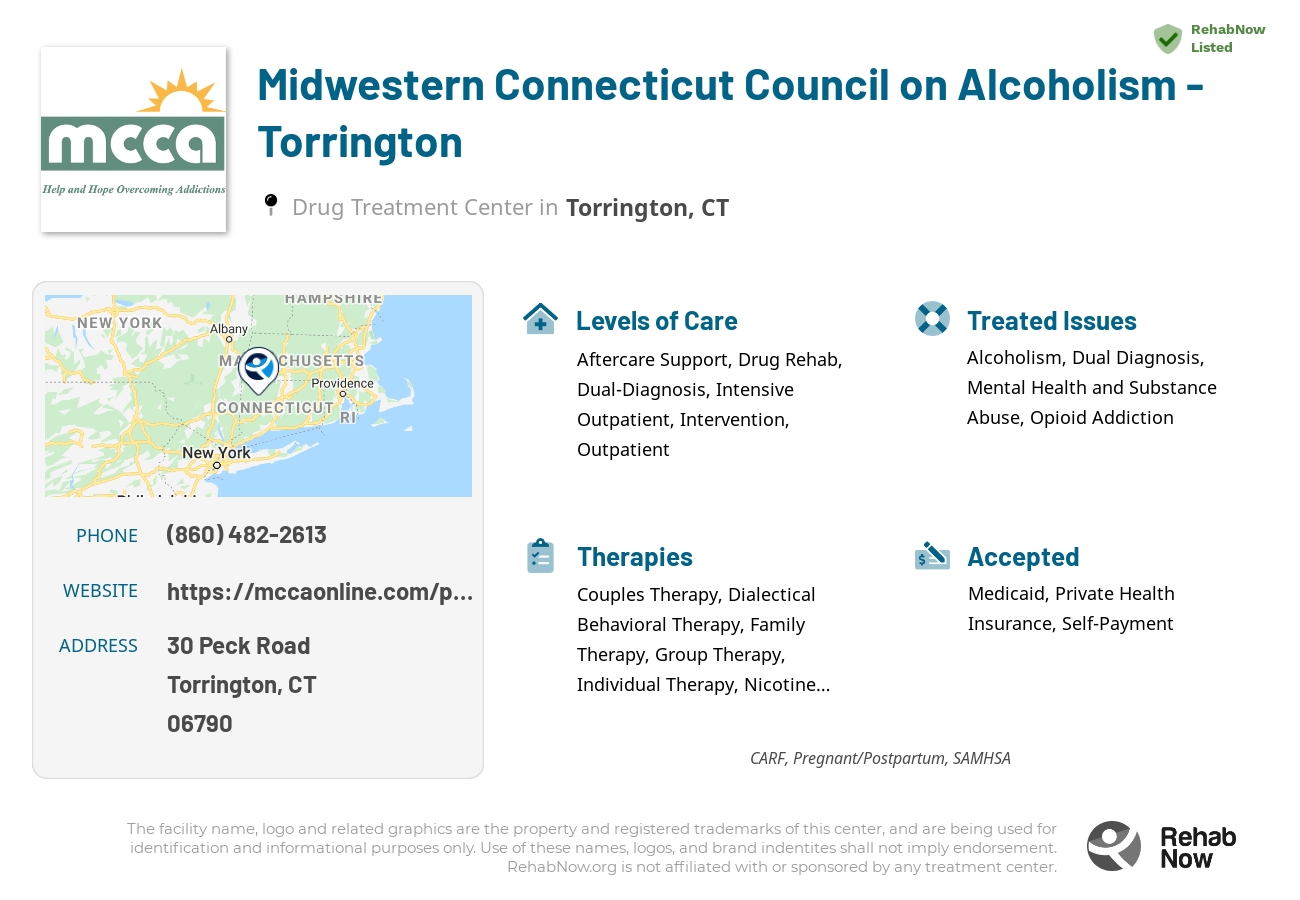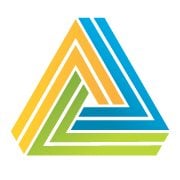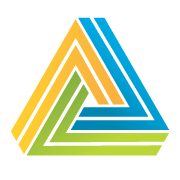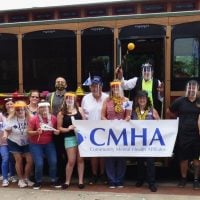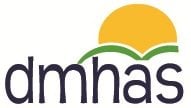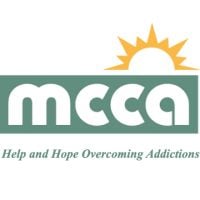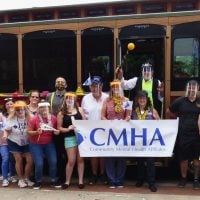Midwestern Connecticut Council on Alcoholism - Torrington
Drug Rehab Center in Torrington, Connecticut
The Midwestern Connecticut Council on Alcoholism-Torrington offers outpatient care for alcohol addiction, including aftercare support, drug rehab services and access to private health insurance; the facility is accredited by the Commission on Accreditation of Rehabilitation Facilities.
About Midwestern Connecticut Council on Alcoholism - Torrington in Connecticut
Located in Torrington, Connecticut, the Midwestern Connecticut Council on Alcoholism (MCCA) stands out as a dedicated non-profit organization committed to assisting individuals grappling with addictions and co-occurring disorders. At its core, MCCA aims to offer accessible and affordable high-quality recovery services, underpinned by the belief that addiction, mental health issues, co-occurring disorders, and gambling are treatable. Through a variety of specialized programs and a focus on both the individual and family recovery, MCCA provides a unique pathway to sobriety and wellness.
- Comprehensive Care: Offers a range of programs including intensive outpatient, outpatient, and specialized groups tailored to individual needs.
- Evidence-Based Treatments: Utilizes a blend of therapies including dialectical behavioral therapy (DBT), 12-step integration, and relapse prevention, among others.
- Accessible Services: Believes in providing high quality, affordable care, including free tobacco cessation treatment for those looking to quit smoking.
MCCA is recognized for maintaining accreditations from CARF and SAMHSA, highlighting its commitment to meeting high standards of care for addiction recovery. By accepting private health insurance, it broadens access for individuals seeking help for substance abuse and co-occurring disorders, ensuring that more people can receive the support they need on their journey towards recovery.
The facility addresses various addictions including alcoholism, opioid addiction, drug addiction, and issues such as gambling and co-occurring mental health conditions. Treatment methods offered range from individual and group counseling, life skills training, family therapy, to medicated-assisted treatment, ensuring a comprehensive approach to recovery across different levels of care.
Genders
Ages
Modality
Additional
Accreditations
SAMHSA

CARF
The Commission on Accreditation of Rehabilitation Facilities (CARF) is a non-profit organization that specifically accredits rehab organizations. Founded in 1966, CARF's, mission is to help service providers like rehab facilities maintain high standards of care.
Conditions and Issues Treated
Opioid addiction is a common form of addiction, often caused by prescription drugs that are abused. Addiction is treated by detoxifying the body and following up with therapies to correct behavior and target the root of the problem.
Most opioid addiction begins with patients being prescribed painkillers after an injury or surgery. The body becomes used to the chemicals in these medications and soon no longer responds to their presence. As a result, addicts seek out stronger opiate-based medications like Oxycodone to compensate for the lack of effectiveness.
The most dangerous aspect is that these addictive behaviors often get carried over onto illicit drugs like heroin, which are increasingly potent and result in lower life expectancies.
Dual Diagnosis treatment centers like Midwestern Connecticut Council on Alcoholism - Torrington provide this treatment tailored to the patient’s specific needs, and they also have a specialized focus on addiction treatment. Drug and alcohol addiction often coexists with another mental illness, such as depression or schizophrenia. In other words, drug addiction is only a symptom of a deeper problem.
When addiction enters into the picture, it can often lead to dangerous consequences in the addict’s life. For example, when addiction is paired with major depression, it can lead to suicidal thoughts or actions. When someone is addicted to drugs or alcohol, they often experience a failure to control their impulses and difficulty decision-making.
Dual diagnosis for drug addicts can be very effective when treating drug addiction in Torrington, CT.
Levels of Care Offered
This center offers a variety of custom treatment tailored to individual recovery. Currently available are Aftercare Support, Drug Rehab, Dual-Diagnosis, Intensive Outpatient, Intervention, Outpatient, with additional therapies available as listed below.
Intensive Outpatient Programs (IOPs) are a form of drug treatment that allows individuals to receive the therapy they need while remaining in their homes and community. IOPs allow for the flexibility to continue working and living at home while still meeting treatment demands.
Outpatient treatment programs are less intensive than an inpatient program. Participants live at home while working or going to school. Benefits include being able to continue relationships with family, friends, and work/studies. Treatment includes educating patient on addiction to drugs, medication, and counseling. Benefits include being able to continue relationships with family, friends, and work/studies. Treatment includes educating patient on addiction to drugs, medication, and counseling. Counseling sessions are for either individual or group.
Drug rehab intervention aims to make sure patients understand the risks of their addiction and possible outcomes if they continue their behavior. They must learn how their addiction affects those around them and allow a therapy session to help move past the physical symptoms.
Interventions are used in drug rehab to help patients overcome their addiction to drugs. They often include psychotherapy or behavioral therapy, group therapy, family counseling, and peer support. Each intervention is designed to provide a unique perspective of how the addiction occurs and what can be done to stop it.
Aftercare Support in drug rehab is crucial because it helps people stay sober after treatment. The benefits of Aftercare Support are that it provides a pathway that will help people get sober for life. It supports healing at all levels, physical, mental, emotional, and spiritual.
Therapies & Programs
Individualized Treatment is essential because it gives addicts the ability to participate in a program that meets their unique needs. An addict should work with professionals who understand what they’re going through, especially if the addict is actively using.
Trying to find a treatment program that meets your needs can be challenging. It’s even more complicated if you don’t know what kind of treatment you need. Being able to have professionals who are experienced with treating your situation is key to getting sober. Finding the right treatment program for an addict is difficult, but it’s even harder without communicating with those who have experience treating your specific situation.
Couples therapy is beneficial for couples in which at least one partner has a substance use disorder. This type of therapy can help partners improve communication skills, which is an important factor in a healthy relationship. It can also help partners better understand one another so they have a greater understanding of how the other partner may be feeling.
Benefits of couples therapy include:
- Improvement in communication skills
- Increased understanding of the dynamics within a relationship
- Increased sense of support and trust in the relationship
- Better teamwork between partners/increased willingness to listen and work together
- Enhanced tolerance of each other’s shortcomings
- Improved ability to have open, honest communication with each other
Family dysfunction can often be the underlying cause of substance abuse. To get sober, you need to find a different way to cope with the pain in your life. Family therapy can help you and your family deal with old issues that may trigger substance abuse. It will help everyone understand why each member of the family feels and acts the way they do. It can give everyone new tools to manage their emotions so that they don’t want to drink or do drugs.
A person looking for drug recovery should know that group therapy is an essential tool. Group therapy provides accountability and friendship to people with addiction. It is recommended as a lifetime treatment habit. Group therapy occurs in a group setting as opposed to a one-on-one setting. It benefits patients by providing a feeling of support and letting them know they are not alone. Patients at Midwestern Connecticut Council on Alcoholism - Torrington also learn to build trust and understanding and gain perspective through discussions.
If you are looking for a drug addiction treatment program that also provides trauma therapy, then Midwestern Connecticut Council on Alcoholism - Torrington in Torrington, CT is a great option. The staff at this facility specialize in helping people process and understand the past traumas that have led them to addiction. This approach can help individuals move forward with their recovery and take a better hold of their sober future.
The benefits of trauma therapy at Midwestern Connecticut Council on Alcoholism - Torrington in Torrington, CT are as follows:
- People will become less likely to engage in self destructive behaviors.
- Their emotional and mental health will significantly improve.
- They will be more confident in their abilities to live an addiction-free life.
- People will be able to connect with other people on a deeper level.
- Their problems with intimacy and trust will improve.
Dialectical behavior therapy is a type of cognitive-behavioral therapy that focuses on eliminating specific negative thoughts that can potentially lead to an individual inflicting self-harm. It helps treat patients exhibiting uncontrollable emotions, intense mood swings, and borderline personality disorders.
The term “dialectic” means the integration of opposites. In the substance abuse context, dialectical behavior therapy refers to accepting the patient’s addiction and changing their thoughts and behavior. It improves life skills such as controlling intense emotions without reacting impulsively, resolving interpersonal conflicts effectively, and promoting awareness about self and others.
Payment Options Accepted
For specific insurance or payment methods please contact us.
Is your insurance accepted?
Ask an expert, call (888) 674-0062
Midwestern Connecticut Council on Alcoholism Associated Centers
Discover treatment facilities under the same provider.
- MCCA McDonough House and Detox - Danbury in Danbury, CT
- MCCA - New Haven Clinic in New Haven, CT
- MCCA Danbury Outpatient Clinic in Danbury, CT
- MCCA Derby Outpatient Clinic in Derby, CT
- MCCA - Trinity Glen Women's Program in Kent, CT
Learn More About Midwestern Connecticut Council on Alcoholism Centers
Additional Details
Specifics, location, and helpful extra information.
Torrington, Connecticut 6790 Phone Number(860) 482-2613 Meta DetailsUpdated April 15, 2024
Staff Verified
Midwestern Connecticut Council on Alcoholism - Torrington Patient Reviews
There are no reviews yet. Be the first one to write one.
Torrington, Connecticut Addiction Information
Connecticut has a higher rate of substance abuse and addiction than the national average. The state ranks in the top 10 in the country for illicit drug dependence among those ages 18 to 25. In 2010, there were 9,211 people admitted to an alcohol treatment facility for alcohol abuse combined with a secondary drug. Connecticut ranked fifth in the United States of America for the number of fatalities involving drunk driving in 2014.
About 8% of Torrington residents reported using illicit drugs in the past month. Most commonly abused drugs in Torrington include marijuana, cocaine, heroin, and prescription opioids. The abuse of these substances often leads to addictions and substance use disorders. Drug rehab centers can provide the necessary treatment and support to help individuals struggling with addiction get sober.
Treatment in Nearby Cities
- Farmington, CT (18.3 mi.)
- Guilford, CT (42.1 mi.)
- Westport, CT (45.9 mi.)
- Rocky Hill, CT (26.2 mi.)
- Bethlehem, CT (10.5 mi.)
Centers near Midwestern Connecticut Council on Alcoholism - Torrington
The facility name, logo and brand are the property and registered trademarks of Midwestern Connecticut Council on Alcoholism - Torrington, and are being used for identification and informational purposes only. Use of these names, logos and brands shall not imply endorsement. RehabNow.org is not affiliated with or sponsored by Midwestern Connecticut Council on Alcoholism - Torrington.
